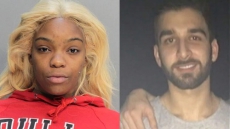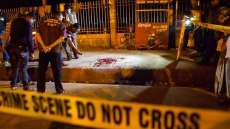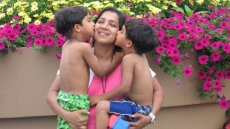TORONTO — When research teams planning clinical trials of Ebola vaccines were divvying up West Africa last fall, no one wanted Guinea.
Six months later the last player chosen seems likely to be the only one capable of crossing the finish line. The best hope this outbreak will prove an Ebola vaccine works now rests with the West African country where it began.
"We are firmly convinced we will get results," says Dr. Marie-Paule Kieny, a senior World Health Organization official who is principal investigator of the Guinea vaccine trials, which are testing a vaccine made at Canada's National Microbiology Laboratory in Winnipeg.
"There are enough cases. We are scaling up."
Kieny, who is spearheading the WHO's efforts to develop and deploy Ebola vaccines and drugs, says there were fears Guineans might resist being vaccinated, but that hasn't been the case. "Absolutely no problem," she reports.
The irony of the situation — that Guinea might provide the till-now elusive answer — isn't lost on the partners in the consortium conducting the trials there. They include the WHO, Guinea's Ministry of Health, Medecins Sans Frontieres and the Norwegian Institute of Public Health. Funding comes from a variety of sources, including Canada and the British charity Wellcome Trust.
When parties planning the studies met at the WHO's Geneva headquarters in October, Liberia and Sierra Leone appeared to be far more fertile ground. Guinea's health infrastructure was considered too rudimentary, and villages in some affected parts of the country were refusing to co-operate with Ebola response teams.
Scientists from the U.S. National Institutes of Health selected Liberia for a large randomized trial testing the two leading vaccines, one designed at the NIH and developed by GSK, the other created at Winnipeg and developed by NewLink Genetics and Merck.
The U.S. Centers for Disease Control opted for Sierra Leone, where it will test only one vaccine, the Winnipeg lab's rVSV-ZEBOV.
But leaving out Guinea was both politically indefensible and unfair. So a consortium led by the WHO agreed to conduct two trials there — one involving vaccination of front-line workers and the other a ring vaccination scheme designed to see if Ebola's spread could be stopped by vaccinating people who had been in contact with cases.
Some rings of contacts of new cases are being offered vaccine immediately while others are randomly assigned to receive vaccine after a three-week delay. There should be fewer secondary cases among the immediately vaccinated contacts if the vaccine works.
It is this trial that is now expected to provide evidence of effectiveness — if rVSV-ZEBOV protects people as well as it protects primates from Ebola.
In Sierra Leone, the CDC hasn't yet started to vaccinate the health-care workers and ambulance drivers it hopes to enrol in its study. With the outbreak slowing there, chances that this trial will prove the vaccine works are waning.
It is impossible to show that a vaccine is protective in a setting where even unvaccinated people aren't contracting the disease.
With only one case reported since mid-February, Liberia's outbreak seems to have been extinguished. Barring a disaster, the large NIH trial there will not be able to determine if the vaccines are effective, says Dr. John-Arne Rottingen, director of the division of infectious disease control at the Norwegian Institute of Public Health.
Dr. Jeremy Farrar, who heads the Wellcome Trust, says it's critical that those efforts continue, even if they are unlikely to answer the key question. The outbreak isn't over, Farrar warns, and flare-ups could occur.
Even if they don't, he notes those trials will produce valuable data showing how well the vaccines are tolerated. Moreover, blood samples from some of the volunteers will reveal both how rapidly antibodies were produced and whether they are fleeting or lasting.
The journal Science recently reported the team behind the Liberia trial was exploring the possibility of moving into Guinea, news that provoked consternation within the WHO consortium.
Rottingen says Ebola activity in Guinea is concentrated in three prefectures, spots where the WHO trial is already operating. Running two large trials in the same area would jeopardize the possibility of finding results, he suggests. And elsewhere in the country the rate of new cases is too low to make a trial feasible.
The two groups are now in talks to see if accommodations can be made. (The lead for the NIH trial, Dr. Clifford Lane, declined to be interviewed at this time.)
It would take time for the NIH trial to get all the approvals needed to move into Guinea, and Rottingen says it is conceivable that the current studies may be completed by the time the NIH group would be ready. The plan is to complete nearly 200 vaccination rings by mid-June.
That might solve one problem, but raise another. If the ring vaccination trial shows rVSV-ZEBOV is protective, the NIH-led study would probably have to be revised, Rottingen suggests.
It is currently designed to test the two vaccines against a placebo — an injection of salt water. But it would be considered unethical to assign some people to get a placebo shot if there is a vaccine that is known to protect against Ebola. That would mean the GSK vaccine would likely have to be tested against rVSV-ZEBOV — which can be a higher bar to clear.





